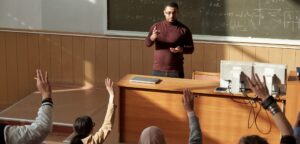
When to Begin the End: The Role and Use of Summary in Course Design
How do you approach the final weeks of your course? Most of us include some sort of summation activity: a final review, a course evaluation, sometimes a reflective paper.
Recently, I have begun to incorporate these kinds of activities much earlier in my courses, with













